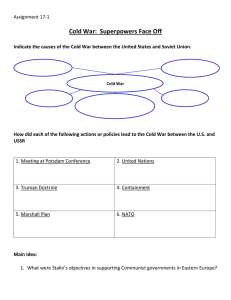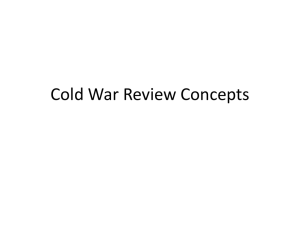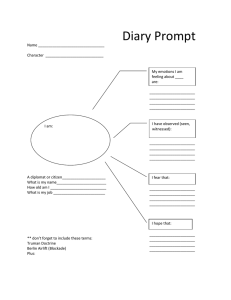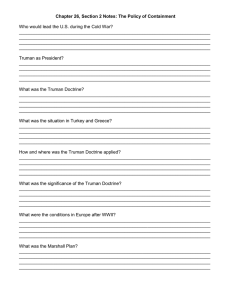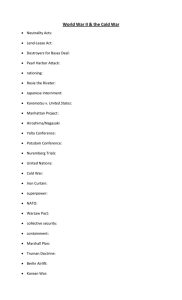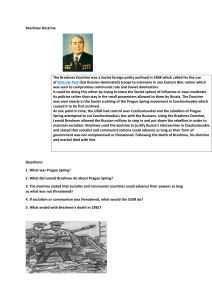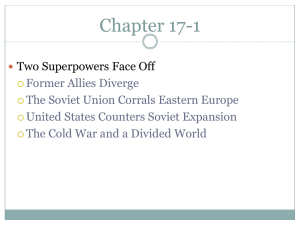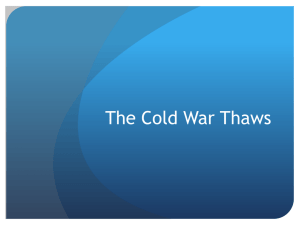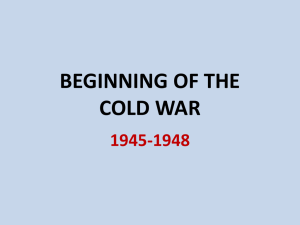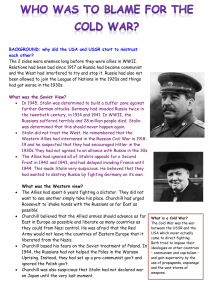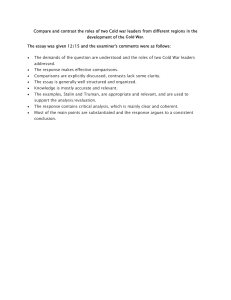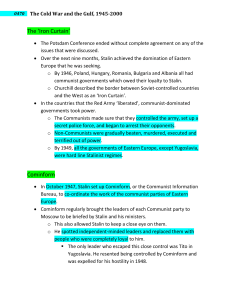UNIT FOURTEEN: THE COLD WAR
advertisement
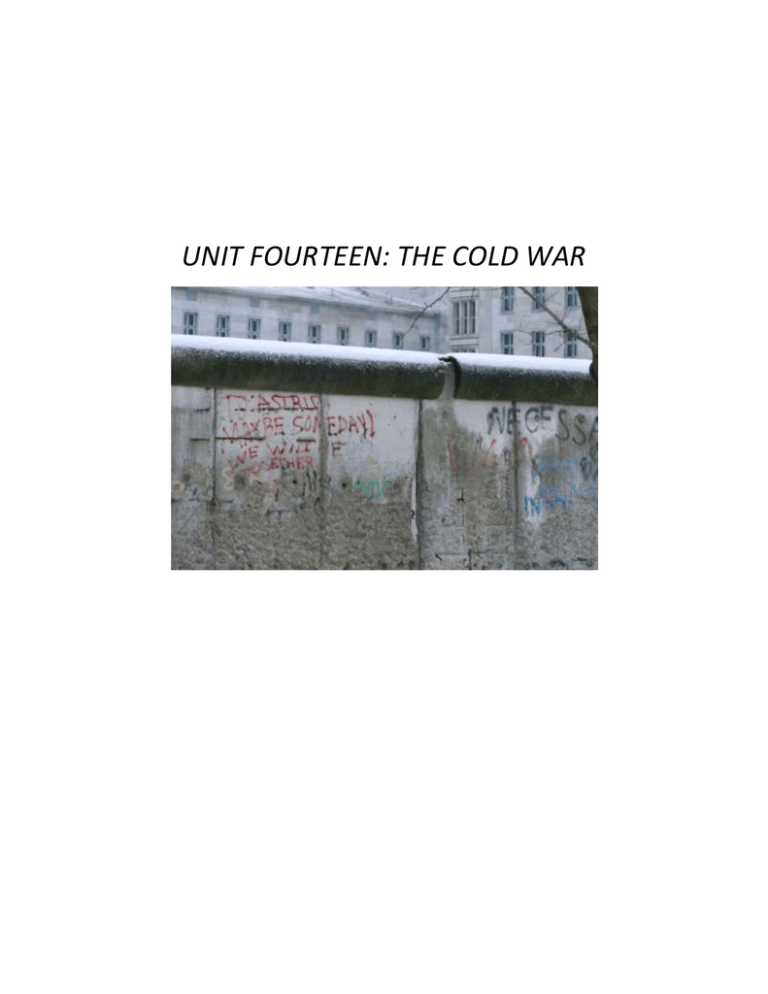
UNIT FOURTEEN: THE COLD WAR Unit 14: The Cold War (Selections of Chapter 32 and 33) Terms: Define the following as they pertain to the historical topic at hand. Term Cold War Iron Curtain Superpowers NATO Warsaw Pact Satellites (countries, not technology) Truman Doctrine Containment Marshall Plan Berlin Airlift Berlin Wall Cuban Missile Crisis Proxy War Korean War Define Importance (why is this significant?) Vietnam War Détente Space Race Brezhnev Doctrine Glasnost Perestroika People: Identify the following individuals Individual(s) Location Significance/ importance to history Harry S. Truman Joseph Stalin Nikita Khrushchev Leniod Brezhnev John F. Kennedy Mikhail Gorbachev Map Activity: Place the countries/places listed below on the map. Create a color key to demonstrate the coordination. Charts: Complete the chart using information from class as well as your textbook. Positives and Negatives of the Cold War Positive Effects Negative Effects Primary Sources: Use the documents to answer the following questions. Use complete sentences. 1) What is Stalin’s goal in this cartoon? When would he have been doing this? 2) How do these actions affect the United States? What do we do in response? 1) What is going on in this cartoon? 2) Why will neither side use the nuclear weapons? 3) What event in history does this represent? Summary Questions: Answer the following questions in 3+ full sentences 1) Explain the multiple causes of the Cold War. 2) What makes the Cold War “cold”? Explain how superpowers were able to fight without fighting. 3) Choose three of the following countries and explain how the Cold War affected them: Korea, Vietnam, Cuba, Nicaragua, Poland, Hungary, Afghanistan and Czechoslovakia.
